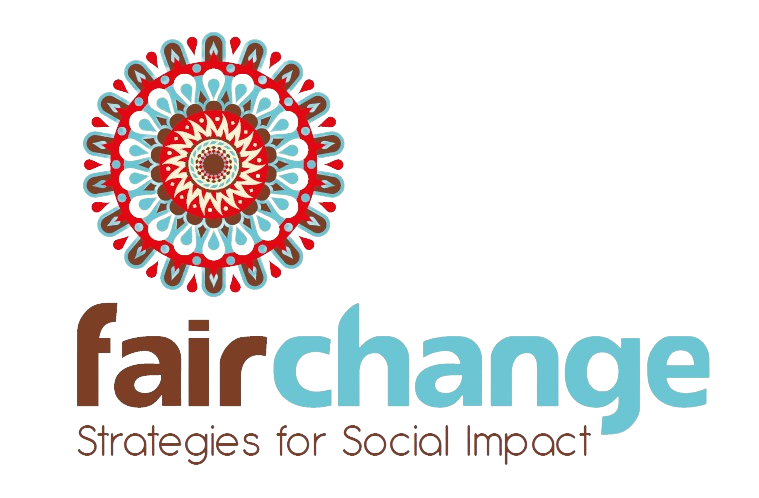I used to think gender equality in work and business means there’s no need to pay special attention to women. We’re equals, right? So we deserve equal attention. But now I know better. Particularly in complex operating environments in low-income countries, women entrepreneurs have to work extra hard to succeed. Maybe that’s why they tell the most inspiring stories about willpower and perseverance.
Since I was young I’ve committed to promoting human rights in different working environments. But why bother about women’s rights? Women are humans, aren’t they? So I always thought it was a bit silly to make a special effort for us, just because we were born female. The best person for the job, woman or man.
Small macho behaviors
But that has changed over the course of my life and career. I didn’t pay much attention to it in my teens and twenties. Until I realized they were popping up everywhere: glass ceilings, old boys networks and “micro machismos” as they call it in Spanish. Small macho behaviors: casual sexist comments or random discriminatory actions women bump into time and again.
They are often unintentional and not meant to offend. And they are so woven into our daily lives that we almost take them for granted.
Related – Read how women entrepreneurs in rural areas around the world find solutions for environmental challenges while promoting gender equality in this story I wrote for IKEA Social Entrepreneurship on the occasion of International Women’s day
Champions of minority rights
I’ve encountered loads of micro machismos in my own working life. For example, that visit by Professor Arkoun to the offices of the Amsterdam anti-discrimination organization where I had my first job. It still makes us laugh when we think of it, my male ex-colleagues and me.
Mohammed Arkoun, now passed away, was (you can check it on Wikipedia) an eminent Algerian scholar and champion of a modern, secular Islam. That’s what we strived hard for. I wrote many thorough research reports and policy papers about it. A large part of the work produced by the Amsterdam University Special Chair of Modern Islam held by the renowned Professor was done by me.
Charming one
Arkoun came straight in from Paris and was received with all due respect by myself and a handful of male colleagues. He was a small man of age, walking briskly in his fine tailor-made suit. In his hand he held a leather briefcase bulging with important papers, on his nose balanced a pair of golden glasses under a slightly oversized head of white hair.
When he noticed me – it was the first time we met – he gave my colleagues an appreciative smile. With his high-pitched voice and heavy French-Arabic accent he told them: “Ohh, you’ve found a chaar-ming one!”
After some polite formalities and an introductory round – Monsieur Arkoun, Coskun, Ewoud, Roemer and myself: Katja – we set course for a restaurant to have our working lunch. Having taken a few of his energetic brisk steps, the professor asked my colleagues, more commanding than inquiring, “Maybe Kitty she can carry my back?”
Tears of laughter still spring to our eyes as we imitate that memorable old scholar with his ridiculous sexist behavior.
Encounters with women entrepreneurs
Often it’s much subtler than this. But even now, in 2022, micro and macro machismos can be found everywhere. And gradually it started to annoy me. So… that’s how it just became a natural topic to address in my work for a better and more equal world.
As a consultant to social impact companies and a communication specialist for Do Good organizations I’ve met countless women who struggle for inclusion and equality on a daily basis. They often do so in environments where the economic and social gaps between men and women are so much wider than in my country. For example, in impoverished rural regions in Africa or conflict zones in Colombia that have been closed off from the outside world for decades.
These are always wonderful encounters, and – no offense, gentlemen – the stories of these powerful women entrepreneurs are among the ones that are most impressive. Like men in complex circumstances, they show admirable willpower to get ahead, but usually they have to overcome much greater barriers to succeed.
Green business
And they do so with pride and flair. Take Caroline Kariuki, CEO of Green Pot Enterprises in Kenya, the country’s first all-round company that plants bamboo forests and develops bamboo products for businesses and consumers. Caroline changed her comfortable corporate career in banking to pursue her green entrepreneurial dream with her business partner, also a woman. And with no regrets. Their company is growing rapidly and generates a sustainable income for hundreds of women, youth and local communities.
It made me smile when I heard my own words echoing in hers when I interviewed her. “I’m not a big fan of feminism,” Caroline said. “The best person for the job.”
Still, she added that there are certain things where women outperform men. “The entrepreneurial journey is not easy. You sacrifice so much and many times the returns come much later. But as women we’re resilient and patient enough to go through the phases of scaling a business even when things don’t always go smoothly.”
Inspiring and empowering
My conversations with Caroline and other women rural entrepreneurs in different parts of the world were inspiring and empowering. I got to interview them for a story that appeared on the IKEA Social Entrepreneurship website on International Women’s Day.
As leaders of fast-growing small businesses in agriculture, these women take immense hurdles while developing innovative and sustainable solutions that bring a better quality of life to those who need it most.
Read about the wins and challenges of women leading enterprises promoting a healthy planet with happy people in Empowering women for a sustainable future.
Did you like this blog post and looking out for more? Subscribe to my Purpose & Impact Now mailing list and you’ll be the first to receive my upcoming blog posts, tools and tips on doing business with purpose and growing your positive impact. Yes! Subscribe >>

